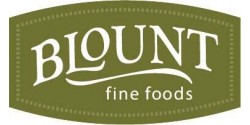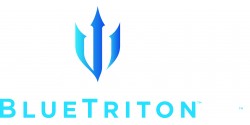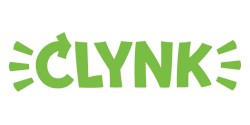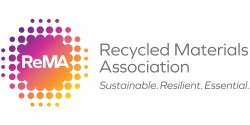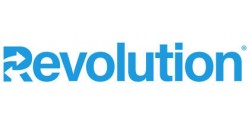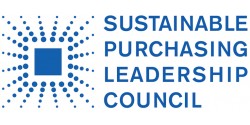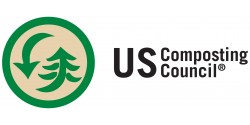February 2022
New & Renewing Memberships
New Sustaining Member
Renewing Sustaining Members
Renewing Supporting Members
- Centre County Recycling & Refuse Authority, Pennsylvania
- Machinex Technologies
- Novamont North America
- Southeastern Connecticut Regional Resource Recovery Authority (SCRRRA)
- Sustainable Electronics Recycling International (SERI)
- Sustainable Packaging Coalition (SPC)
- Tetra Tech
NERC News
- Minimum Post-Consumer Recycled Content Model Legislation for Plastics - Comments due February 11
- Seeking Circularity with Non-Traditional Solutions - NERC’s Spring Conference
- Trainings 2 & 3 in NERC’s DE&I Series to Be Held in February
- End Markets for Finished Compost Webinar - February 23
Newly Posted
- NERC Releases Model Glass Minimum Post-Consumer Recycling Content Legislation
- Overview Webinar to Draft Model Plastic PCR Legislation
State Updates
MASSACHUSETTS
Advisory Member News
- Revolution’s Recycling Process Receives Groundbreaking Letter of No Objection (LNO) for Food Contact Applications
- New Research Reveals Getting Consumers to Commit to Recycling Isn’t Necessarily Enough
Membership is key to NERC's regional and national commitment to sustainable materials management. As 2022 begins, we're already on a roll with a new Sustaining Member, the Reverse Logistics Group (RLG), as well as renewing Sustaining Members AMP Robotics, Revolution, and Strategic Materials.
In addition, we've had 7 renewing Supporting Members:
- Centre County Recycling & Refuse Authority, Pennsylvania
- Machinex Technologies
- Novamont North America
- Southeastern Connecticut Regional Resource Recovery Authority (SCRRRA)
- Sustainable Electronics Recycling International (SERI)
- Sustainable Packaging Coalition (SPC)
- Tetra Tech
Thank you to everyone for supporting NERC.
To see a complete listing of NERC's Members and Supporters, as well as the benefits of membership, visit the NERC Advisory Membership web page.
NERC News
Minimum Post-Consumer Recycled Content Model Legislation for Plastics - Comments due February 11
Over the past 18-months, NERC and NEWMOA have facilitated a group of state recycling officials from the northeast to develop draft Model Legislation for minimum post-consumer recycled plastic content in trash and carry-out bags and food, beverage, and household product containers. The Model Legislation is intended as a common starting point in the development of legislation requiring the use of post-consumer recycled plastic in specified products sold in the states.
You are invited to submit comments on the Minimum Post-consumer Recycled Plastic Content Draft Model Requirements for the Sale of Trash and Carry-out Bags and Food, Beverage, and Household Product Containers. The public comment period for the Draft Model Legislation is open until February 11, 2022, midnight Eastern.
Seeking Circularity with Non-Traditional Solutions - NERC’s Spring Conference
The Conference will be virtual, taking place April 12 – 13 (1 – 5 daily, eastern). It will begin with a keynote panel discussion about Mergers & Acquisitions in Recycling followed by sessions about Ecodesign: Packaging & Repairability and The Sustainability of Batteries: Exploring Emerging Strategies. Day Two will include sessions about Diversity, Equity & Inclusion as Part of Operations; Agricultural Plastics: Challenges & Innovation; and Construction & Demolition Debris: New Strategies for Reusing Old Materials. In addition, the Conference offers time for networking with the attendees and the Conference sponsors.
More details about the sessions and presenters can be found in the Agenda.
CONFERENCE SPONSORS
SILVER SPONSOR

BRONZE SPONSORS

Contact: Mary Ann Remolador
End Markets for Finished Compost Webinar, February 23
Just as with traditional recyclables, closing the loop is essential for successful organics management. The loop is closed with the productive use of finished compost. This webinar, jointly hosted by NERC and NEWMOA, will discuss end market applications and examples from organizations that compost food and other organics. The webinar will take place February 23, 1 - 2:30 eastern.
Presenters will be:
- Debra Darby, Manager, Organics Sustainability Solutions, Tetra Tech, Moderator
- Charles Duprey, Founder and President of Naturcycle LLC
- Maria Bianchetti, Recycling Specialist, OCRRA
- Emma Yates, Business Development, WeCare Denali
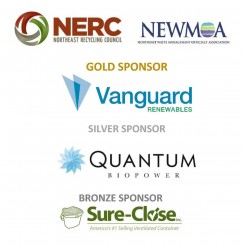
Trainings 2 & 3 in NERC’s DE&I Series to Be Held in February
FREE & OPEN TO ALL
The DE&I Training 2: Recognizing & Addressing Unconscious Bias will be held on February 2, 1:30 – 3:00 eastern.
The Training offers a practical approach to identifying and addressing unconscious bias and its negative impact in the workplace; as well as providing strategies that promote inclusion. The trainers will lay the groundwork for the Training by defining unconscious bias, helping us to recognize our personal identity and its influence on our biases, raising our awareness about the impact our biases have on our and our co-workers' work performances, and developing strategies for inclusion and implementing a DE&I program in the workplace and in our personal lives.
The session trainers are Nidhi Turakhia, Executive Vice President, of Allied Alloys; and Willie Johnson, CEO of Willie Johnson Communications.
 |
 |
The DE&I Training 3: Creating a DE&I Path for Government Employees will be held on February 28, 1:30 - 3:00 eastern.
The training will include some creative exercises for helping government employees with developing a deeper understanding and awareness of diversity, equity, and inclusion. The Training will focus on the importance of the path each of us takes in this process, how it empowers us to advance our thinking about DE&I, and that job titles and work priorities don't have to be limiting factors.
The session trainer is Robyn Afrik, Director, Ottawa County Office of Diversity, Equity and Inclusion (DE&I).
DE&I Training Series Speaker Bios
For More information about the DE&I Training Series, go here.
Newly Posted
NERC Releases Model Glass Minimum Post-Consumer Recycling Content Legislation
The Glass Minimum Post-Consumer Recycled Content Model Legislation has been published by the Northeast Recycling Council (NERC).
Over the past eight months, a diverse group of stakeholders representing government, industry, trade associations, and non-profits, collaborated to develop Model Legislation for minimum post-consumer recycled content requirements in glass food and beverage containers, and fiberglass insulation. The Model Legislation is intended for use by legislators as a starting point for legislation that would require the use of post-consumer cullet— glass that has been processed to remove contaminants and is furnace ready—in certain products sold in their state.
The main goals of the Model Legislation are to incentivize markets for recycled glass, improve the economics of recovering glass, and reduce the environmental impact of manufacturing. The Model Legislation promotes the expanded use of post-consumer cullet in manufacturing new products, motivates development of markets for post-consumer cullet, and reduces the amount of glass that would be treated as waste.
“Glass is a highly recyclable material, and states have consistently heard from stakeholders that markets for post-consumer glass must be strengthened to help develop more demand for this feedstock,” stated Chris Nelson, Supervising Environmental Analyst of the Connecticut Department of Energy & Environmental Protection. “The post-consumer recycled content standards for new glass products proposed in this model legislation are one tool to help create more robust markets for glass recovered through recycling programs.”
A national Work Group of more than 60 members was convened by NERC. A consensus-based process was used to develop the Model Legislation. Public comment was invited and was considered by the Work Group. Work Group members included:
- Brands
- Glass Container Manufacturers
- Fiberglass Insulation Manufacturers
- Glass Recyclers/Beneficiators
- Industry Associations
- Distributors and Retailers
- Haulers and Material Recycling Facility Operators
- State Environmental Agencies and Authorities
- State Recycling Organizations
- Environmental Advocacy Groups
“Anheuser-Busch has a longstanding history of environmental stewardship and has committed to having 100% of our packaging made from majority recycled content or be returnable by 2025,” said Ed Ferguson, Director of Sustainability at Anheuser-Busch. “We know that true circularity requires collaboration across supply chains, government and consumers and we hope this model legislation can help create solutions to reduce glass waste, support the circular economy, and build a future with more cheers.”
The Work Group Chairs that led the discussions were Chris Nelson, Supervising Environmental Analyst of the Connecticut Department of Energy & Environmental Protection; and Stephen Burm, Director of State Government Affairs at Anheuser-Busch with technical assistance from Ed Ferguson, Director of Sustainability at Anheuser-Busch.
Additional glass resources may be found on NERC’s website.
Note: The Model Legislation does not necessarily represent the views of individual work group members.
Contact: Mary Ann Remolador
Overview Webinar to Draft Model Plastic PCR Legislation
A webinar providing an overview of the Minimum Post-consumer Recycled Plastic Content Draft Model Requirements for the Sale of Trash and Carry-out Bags and Food, Beverage, and Household Product Containers took place in January. A recording and the PowerPoint presentation are both available.
- Draft Model Legislation for Minimum Recycled Content Plastic Overview - Presentation
- Model Plastic Post-Consumer Recycled Content Legislation Overview recording
State UpdatesMASSACHUSETTS
MassDEP Announces Release of Reduce & Reuse Action Plan
MassDEP is pleased to announce the release of the final Reduce and Reuse Action Plan. The development of this Plan was called for in the Commonwealth’s 2030 Solid Waste Master Plan. The Reduce and Reuse Action Plan focuses on upstream waste generation and articulates a vision and strategies to advance the reuse economy while fostering a greater culture of reduce/reuse/share/repair among Massachusetts residents, businesses, and institutions. This “living document” will be periodically evaluated and revised as MassDEP works on its implementation.
You can find the Final Action Plan here.
The Action Plan was drafted with the help of the Reduce and Reuse Work Group which met 12 times between January 2020 and June 2021. It was a robust stakeholder process that included representatives from the public, private and nonprofit sectors, as well as local advocates and private citizens. MassDEP is grateful for the unprecedented level of engagement and commitment in this process.
Advisory Member New
Revolution’s Recycling Process Receives Groundbreaking Letter of No Objection for Food Contact Applications
The U.S. Food and Drug Administration (FDA) has issued a Letter of No Objection for Revolution’s proprietary recycling method to produce post-consumer recycled, linear low- density polyethylene (PCR-LLDPE) for food contact applications. PCR produced under Revolution’s process can be used at content levels up to 100% in the manufacture of food contact articles for all food types under nearly all Conditions of Use as defined by the FDA. This marks a first-of-its-kind milestone for the recycling and consumer packaging industries.
A significant breakthrough in flexible plastic recycling and potential solution to consumer packaging sustainability
The announcement of Revolution’s FDA LNO represents a significant step forward in addressing the increasing global need for flexible film recycling and sustainable consumer packaging. In recent years, consumer awareness and demand for recycled content has risen dramatically as organizations such as the
U.S. Plastics Pact have set aggressive targets to achieve as much as 30% recycled content in plastic packaging by 2025. Increased demand for recycled content has driven the need for recyclers to meet the quality standards and food contact requirements set by consumer packaging applications. Revolution’s advancements in flexible film recycling holds promise to bridge this gap by providing the widest possible applications to date for the use of LLDPE PCR in flexible films.
Developing a method to meet food contact quality PCR represents the culmination of a long-term development project undertaken by the Revolution team. Revolution leveraged its more than 25 years of flexible film recycling experience to develop new proprietary processes, testing methods and quality control measures to meet the stringent requirements specified by the FDA. “This was a multi-year, targeted project to improve our process, and it has really paid off in showing what can be done with recycled content. We feel this is just the beginning of tremendous growth and application development for PCR in flexible films,” said Scott Coleman, SVP of Strategy and Growth at Revolution.
Revolution expects additional approvals and advancements based on this first benchmark, paving the way for further innovation in PCR production. The company is currently expanding capacity and ramping up processes to meet market demand. “We are committed to redefining what is possible for flexible film recycling, and the FDA LNO is just the next step in our progress towards even more flexible film solutions that deliver true sustainability to our customers and the consumer packaging industry as a whole,” said Revolution CEO Sean Whiteley.
New Research Reveals Getting Consumers to Commit to Recycling Isn’t Necessarily Enough
To better understand how to improve recycling, in particular how to get more consumers to recycle their food and beverage cartons, the Carton Council of North America recently commissioned a behavioral science study which identified factors that play into recycling decisions.
The study revealed there are micro-behaviors most people need to go through after committing to recycle before it becomes a habit. While the study was specific to cartons, the micro-behaviors are relevant to all commonly recyclable materials and serve as a reminder that even after a consumer has committed to recycling more and/or better, there are still many steps required to make their behavior habitual.
Some of these factors are logistical, such as having the tools necessary to recycle, like a container or location to store recyclables in the kitchen. Others are more psychological and include things like judging whether others recycle; following social norms surrounding recycling; encouraging others in the household to recycle; and feeling positive about being a good neighbor and citizen for recycling.
“By studying how people make decisions and change their behaviors in real life, the Carton Council hopes to unlock new insights which can be leveraged to nudge people to increase the recycling of their food and beverage cartons,” said Carla Fantoni, vice president of communications for the Carton Council and vice president, communications operations for Tetra Pak.
“While availability and the means to recycle, is the most influential element in terms of initiating recycling,” said Fantoni. “The study revealed that psychological factors cannot be overlooked and play an important role in making recycling a habit.”
“The Carton Council looks forward to sharing more on the findings in the near future as well as
incorporating them into communications efforts moving forward,” said Fantoni.
Since forming in 2009, consumer education is a significant part of the Carton Council’s commitment to improving food and beverage carton recycling in the U.S. This includes providing marketing materials for communities to ensure residents know about carton recycling, as well as funding campaigns that strive to inform and motivate individuals to recycle their cartons. Commissioning the behavior science research aims to put more science behind future efforts.










